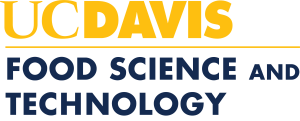COURSE GOALS: The objectives of this course are (1) to provide graduate students with detailed knowledge of the anatomy, physiology, psychophysics and genetics of the chemical senses (taste, smell, trigeminal sense) as it relates to food perception, (2) to examine the relation between the chemical senses and food intake, and (3) to study the chemical senses in special populations (infants, children, elderly, athletes, clinical populations).
COURSE FORMAT: One two-hour lecture per week. The course consists of formal lectures followed by interactive discussion of the topic addressed in the lecture. Students are given selected research and review articles to read before each segment of the course. Knowledge is acquired from lectures, reading and discussion.Grades based on participation in the classroom (20%), one midterm (15%), one term paper (20%), a critique of a research article (20%) and a final exam (25%).
PREREQUISITE: FST 107B (may be taken concurrently) or consent of instructor.
TOPICAL OUTLINE:
- Anatomy and physiology of the sense of taste - mechanisms of taste chemoreception and transduction; neural coding
- Anatomy and physiology of the sense of smell - mechanisms of olfactory chemoreception and transduction; neural coding
- Trigeminal nerve and irritation
- Saliva and oral sensitivities
- Genetics of the chemical senses
- Chemical senses and nutrition (determinants of food preferences, relation between sensory acceptability and dietary intake, sensory-specific satiety)
- Chemical senses in special populations (infants, children, elderly, clinical populations)
